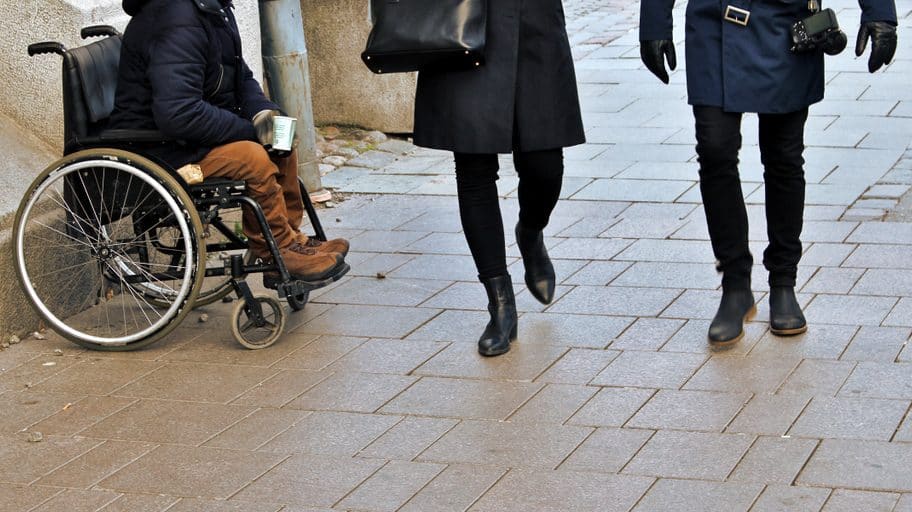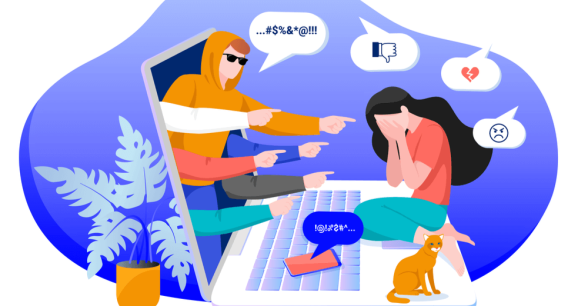Homelessness is a Disability Justice Issue
A few months after I left college, I found myself working for a short time at a men’s homeless shelter in the Tenderloin district of San Francisco. I was a peer advocate, providing meals and conversation during late afternoon and overnight shifts throughout which I supported many residents who returned to the shelter at night inebriated and occasionally high on substances. Given the shelter’s harm-reduction policy, this was a fairly common occurrence for which we were trained to accommodate residents. We only ever handed out punishments if the substances were found on the premises.
It was not a treatment philosophy I had ever encountered before and the emphasis on acknowledging our residents’ humanity stuck with me. Long after I was forced to leave the job due to the same housing instability which these men experienced, I found myself wondering why such oppressed populations had never crossed my mind when considering issues of social justice. More importantly, why didn’t homelessness previously come to mind as a distinct disability issue?
Whether drawing from personal recollections or looking at recent research on the homeless, it is undeniable how central disability is to the lives of many homeless people. Whether it is Los Angeles homeless populations who deal with issues of substance abuse, the ubiquitous presence of those with psychiatric conditions in urban landscapes such as New York City, or those with visible disabilities such as wheelchair users in Santa Cruz, CA, disability is an integral part of the lives of many homeless people. To be clear, this is not to say that a majority of homeless people currently have a disability as, at least concerning issues of mental health, those with psychiatric disabilities are below 20% of the homeless population nationwide. However, with the overall increase of the homeless populations that has occurred over the past few decades – particularly those dealing with severe mental health issues -the need to address disability issues with the homeless is becoming more obvious.
So, if such homeless populations are increasing and disabled people with unattended needs are among them, why are their needs not being addressed? Why has it taken so long for people like myself and others interested in issues of social justice to care about disabled homeless people?
The answer is two-fold, drawing on a pair of related perspectives that drive much organizing around disability in normative settings. The first concerns the Broken Windows theory, which argues that any sign of disrepair in a community signalled by poor people will flourish and overtake the community if not attended to quickly. Essentially, if those who are not of a high caliber character are allowed to proliferate in an area (in this case, homeless people), then the area will soon fall into ruin because simply no one cares for the community anymore.
The second perspective has to do with what is known as respectability politics, the notion that in order to obtain adequate political power for negotiating resources to address social ills, certain codes of “appropriate” conduct should be enforced and adopted by all those involved. Originating from Black middle-class ideology, respectability politics demands a focus on incremental changes to “uplift” society rather than addressing structural ills that have haunted us all for centuries.
Both perspectives get at the heart of why it has taken me and so many others so long to give a sincere damn about disabled homeless people.
I will be the first to say my time working at the shelter was not always the most comfortable. Men would come in intoxicated. Tempers would flare between residents and the likelihood of people coming to blows while dealing with mental health issues was not insignificant. I would wonder if such behavior merited my help and whether or not I would be better appreciated somewhere else by less unscrupulous people.
However, it is precisely that reaction which needed (and still needs) adjustment, not the residents of those shelters or homeless people on the street. Homeless folk are not the problem; rather, the problem is believing that homeless people become disposable once their structural needs are too inconvenient to address. More than anything, believing that anyone can be categorized entirely as an inconvenience is a toxic viewpoint that only creates a self-defeating agenda.
And yet, this is precisely the result of unintentionally relying on the aforementioned perspectives for organizing and criminal law. In many disability organizing circles I’ve been exposed to, there has been a tendency to care only for the “respectable” disabled folk. We have cared only for those who are well-spoken, clean-cut, white, and can advocate on civil grounds in the face of brutal, structural violence.
We ignore the fact that many homeless folk lack access to basics such as showers, bathrooms, food, and freedom from potential assault on the street due to homelessness.
We ignore how strongly affordable housing has declined in recent years and how extreme some city measures go to punish the very public existence of homeless people at the cost of their civil rights.
All because these people will either ruin our cities, act too crazy or too uncouth in behavior to draw political power, or simply be too inconvenient as we fight for middle-class ambitions.
I know addressing disability is difficult. I know the problems that come with homelessness won’t be solved overnight, and that they have been here for far longer than I have lived. But this part and parcel political philosophy of caring only for the convenient disabled people will do us no good. We will keep making the circle of respectable disabled people smaller and smaller until eventually no one will matter but the elites. And take it from someone who was considered homeless for quite some time: that attitude will save nobody in the long-run.
It is favoritism disguised under politics, ableism under the banner of civility, and injustice calling itself charity. And I think we are at a point where our politics needs to care for all of us, even the most “inconvenient” of us.
About Rooted In Rights
Rooted in Rights exists to amplify the perspectives of the disability community. Blog posts and storyteller videos that we publish and content we re-share on social media do not necessarily reflect the opinions or values of Rooted in Rights nor indicate an endorsement of a program or service by Rooted in Rights. We respect and aim to reflect the diversity of opinions and experiences of the disability community. Rooted in Rights seeks to highlight discussions, not direct them. Learn more about Rooted In Rights




Beautiful just Beautiful.
Thank you
Keep writing and unveiling the untruths of our unhoused and undeserved.